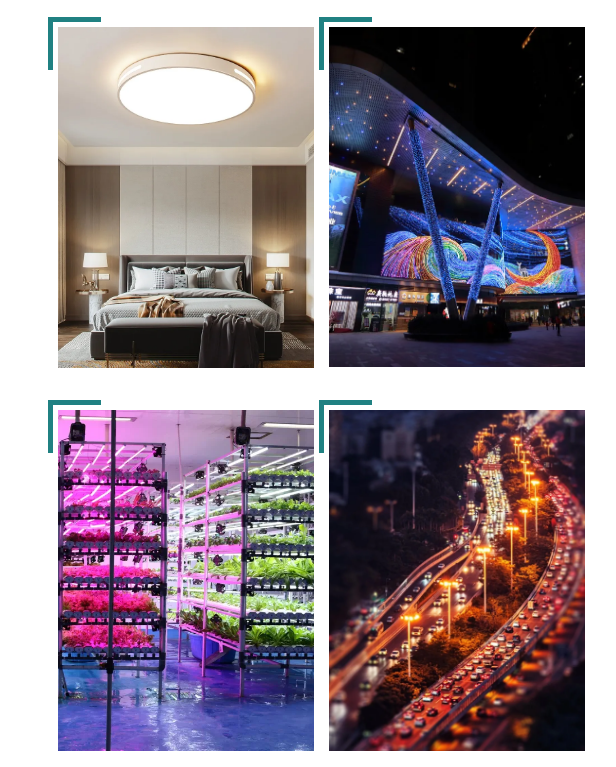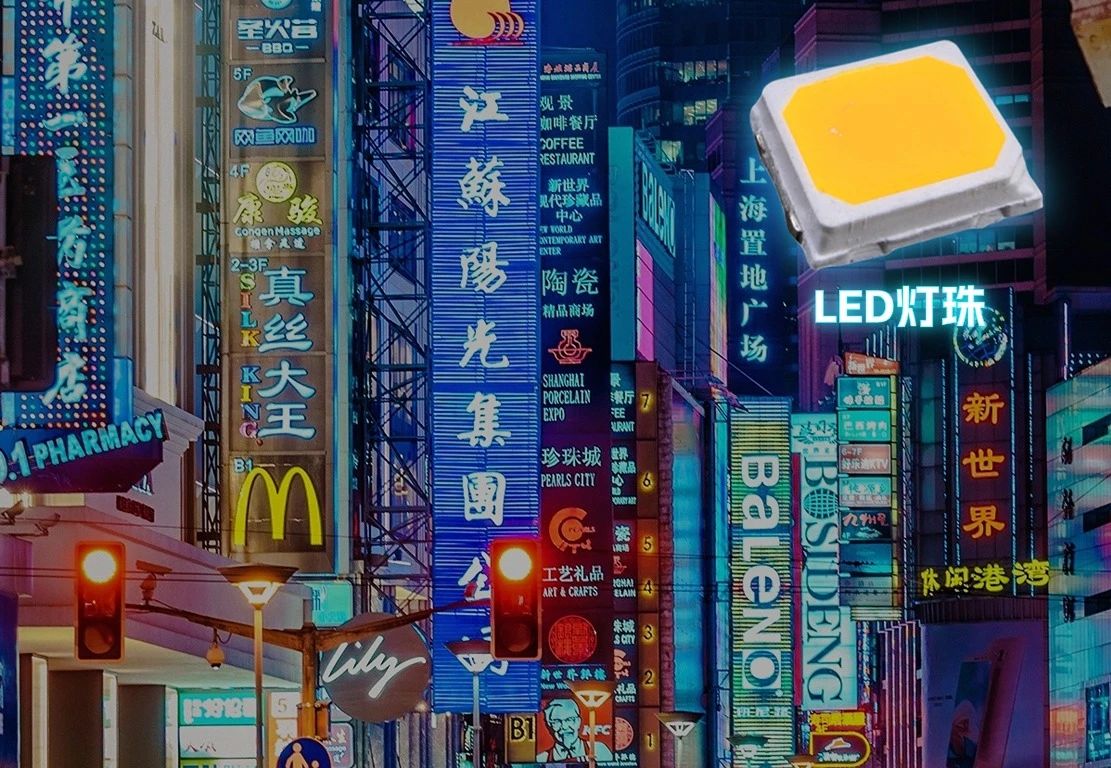
LED is called the 4th generation lighting source or green light source, which has the characteristics of energy saving and environmental protection, long service life, and small size. It is widely used in various fields, such as indication, decoration, lighting and night view.
In the LED industry, a LED sorting machine is a machine that classifies and screens the light wavelength (color), light intensity, current and voltage of LED beads. The taping machine is mainly used for polarity detection, visual inspection and taping packaging of LED beads.
The integration solution of Wecon LED sorting machine and taping machine solution is equipped with Wecon PI series HMI, LX5V series PLC, and VD2 series servo system, which has the characteristics of high speed, high precision and strong integration.
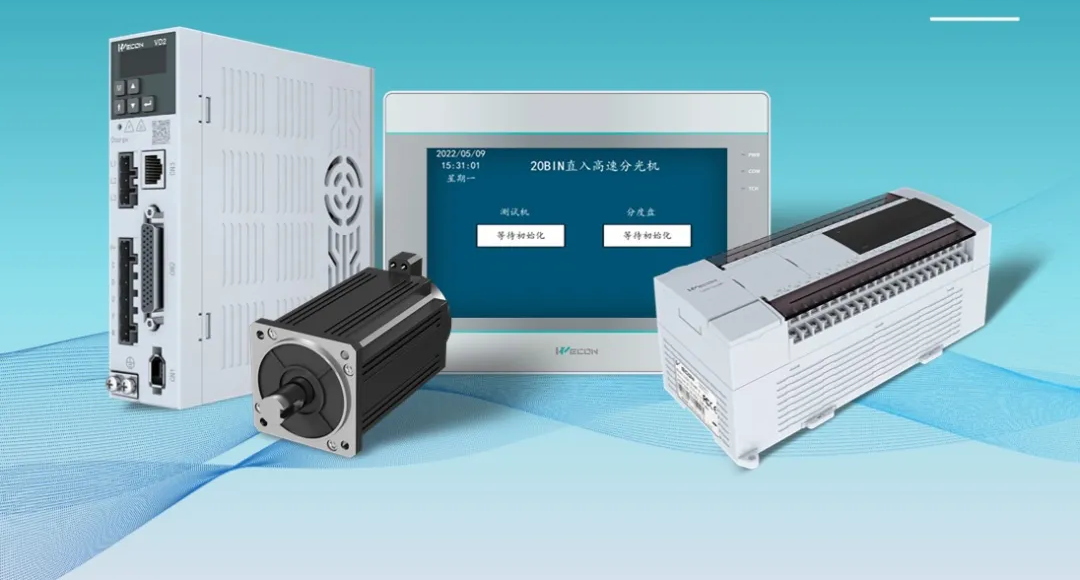
Wecon LED sorting machine control system
01 Composition
The main mechanisms of the LED sorting machine are: Feeding mechanism, testing mechanism, turntable.
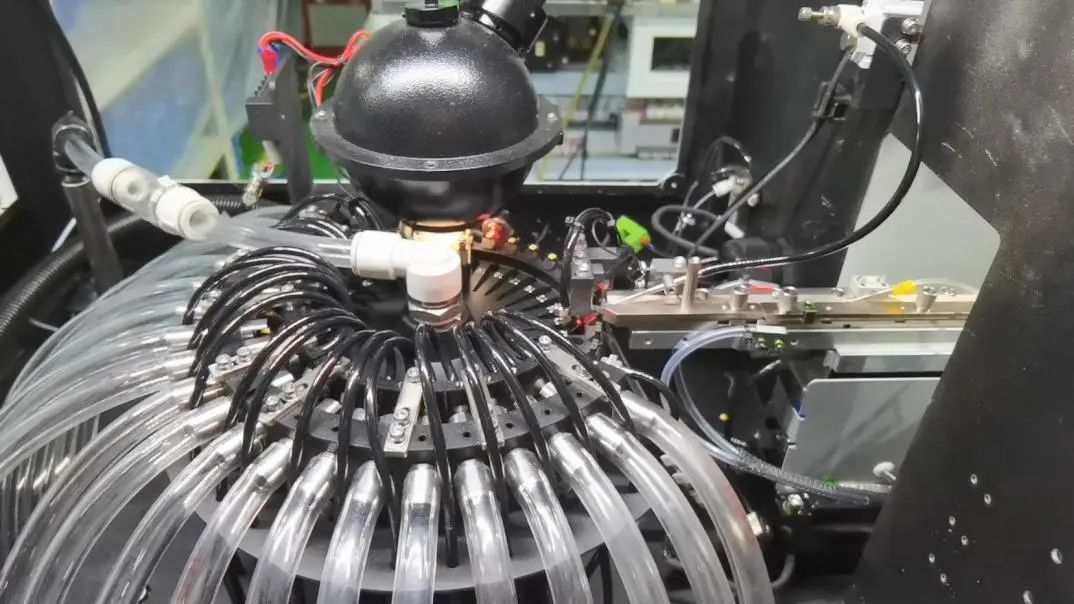
02 LED sorting machine process flow
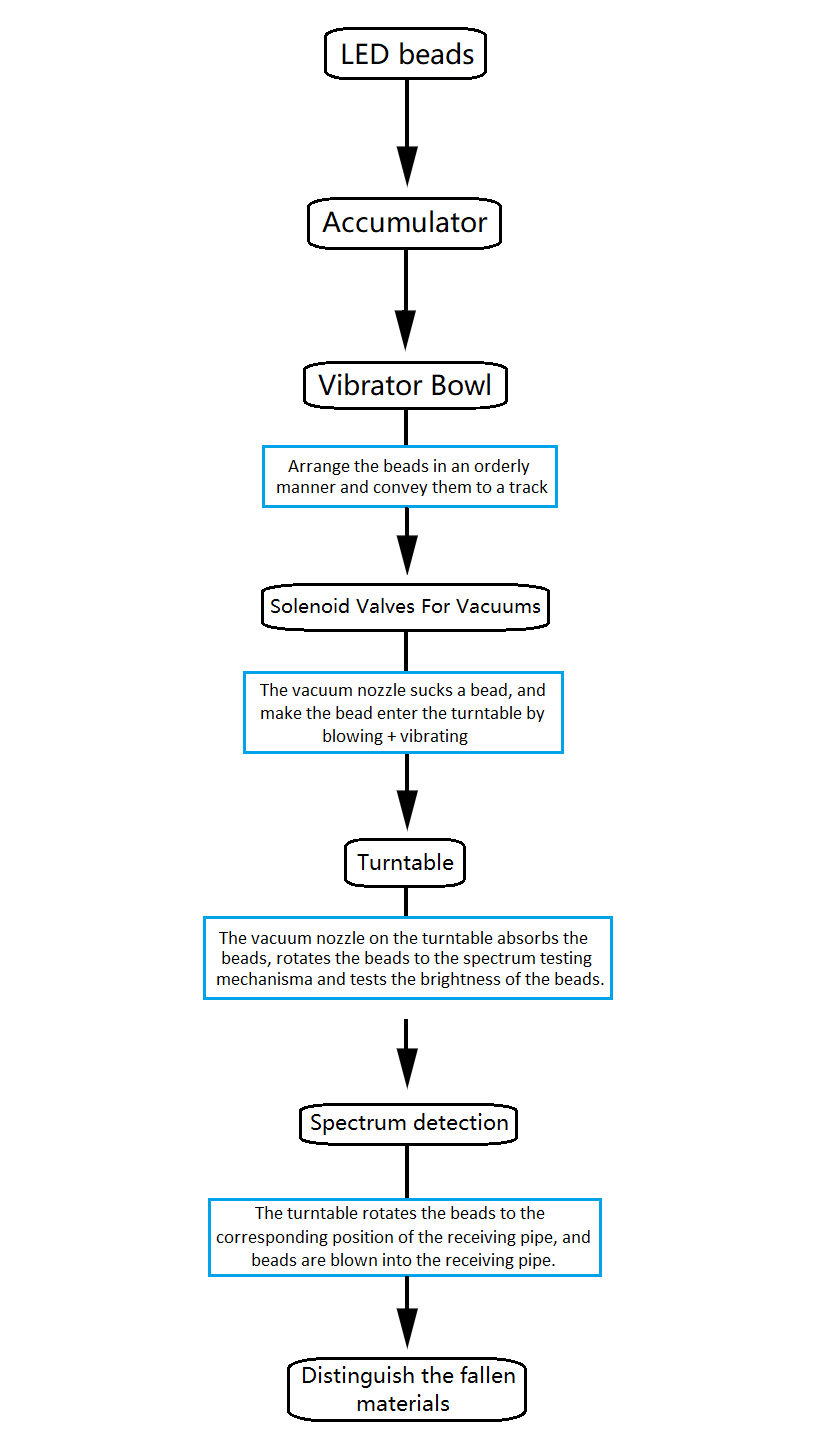
1. Feeding by feeding mechanism
Pour the LED beads into the storage device, enter the vibration bowl through the storage device, the vibrating bowl arranges the beads in an orderly manner and conveys them to the track, the vacuum nozzle at the end of the track sucks the beads, and allows the beads to enter the turntable by blowing + vibrating;
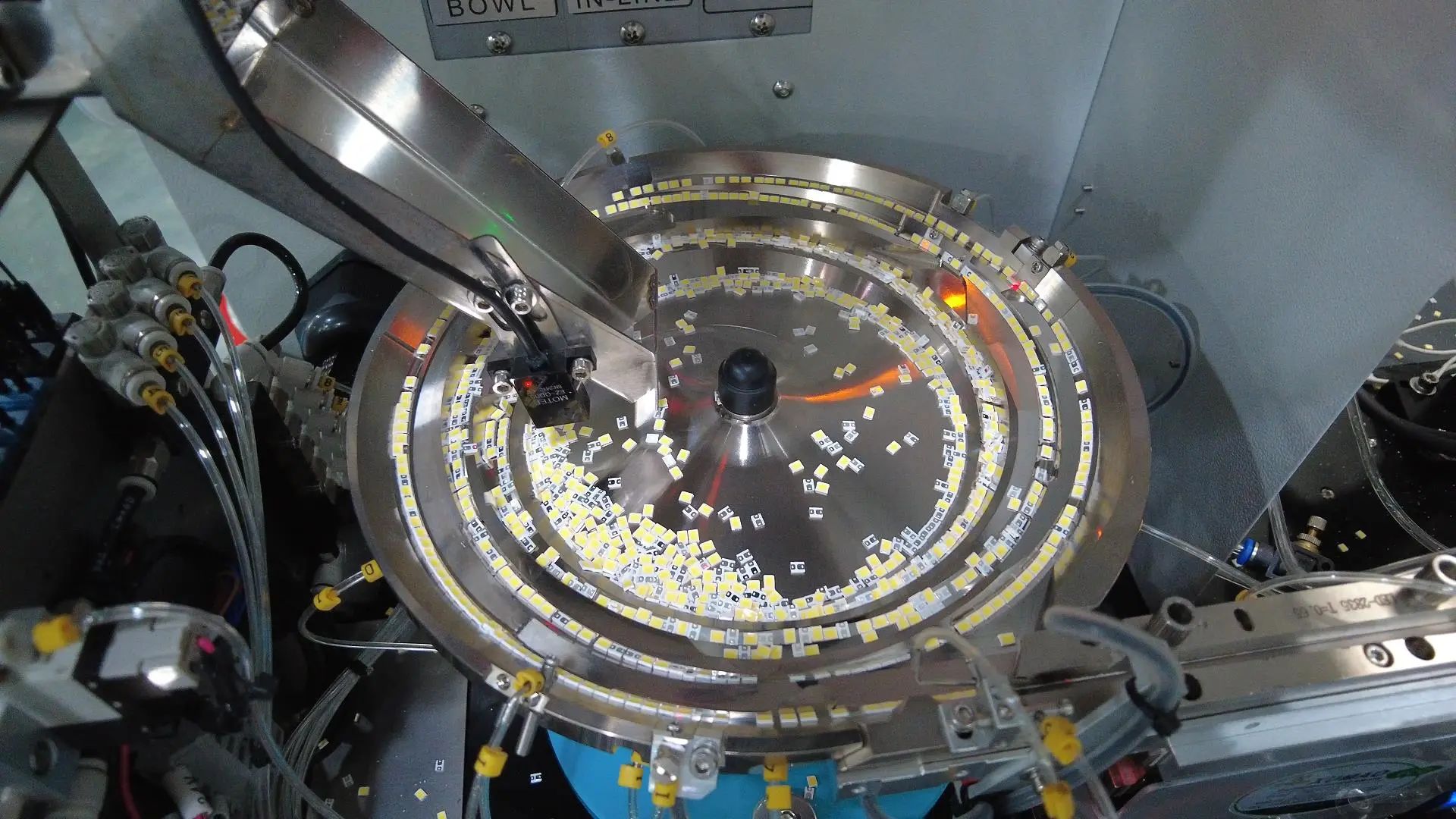
2. Spectrum testing
The vacuum nozzle on the turntable absorbs the beads, rotates the beads to the spectrum testing mechanism, tests the brightness of the beads, and distinguishes the beads with different brightness;
3. Distinguishing and dropping
The turntable rotates the tested beads to the corresponding position of the receiving pipe, and beads are blown into the receiving pipe by the blowing tube.
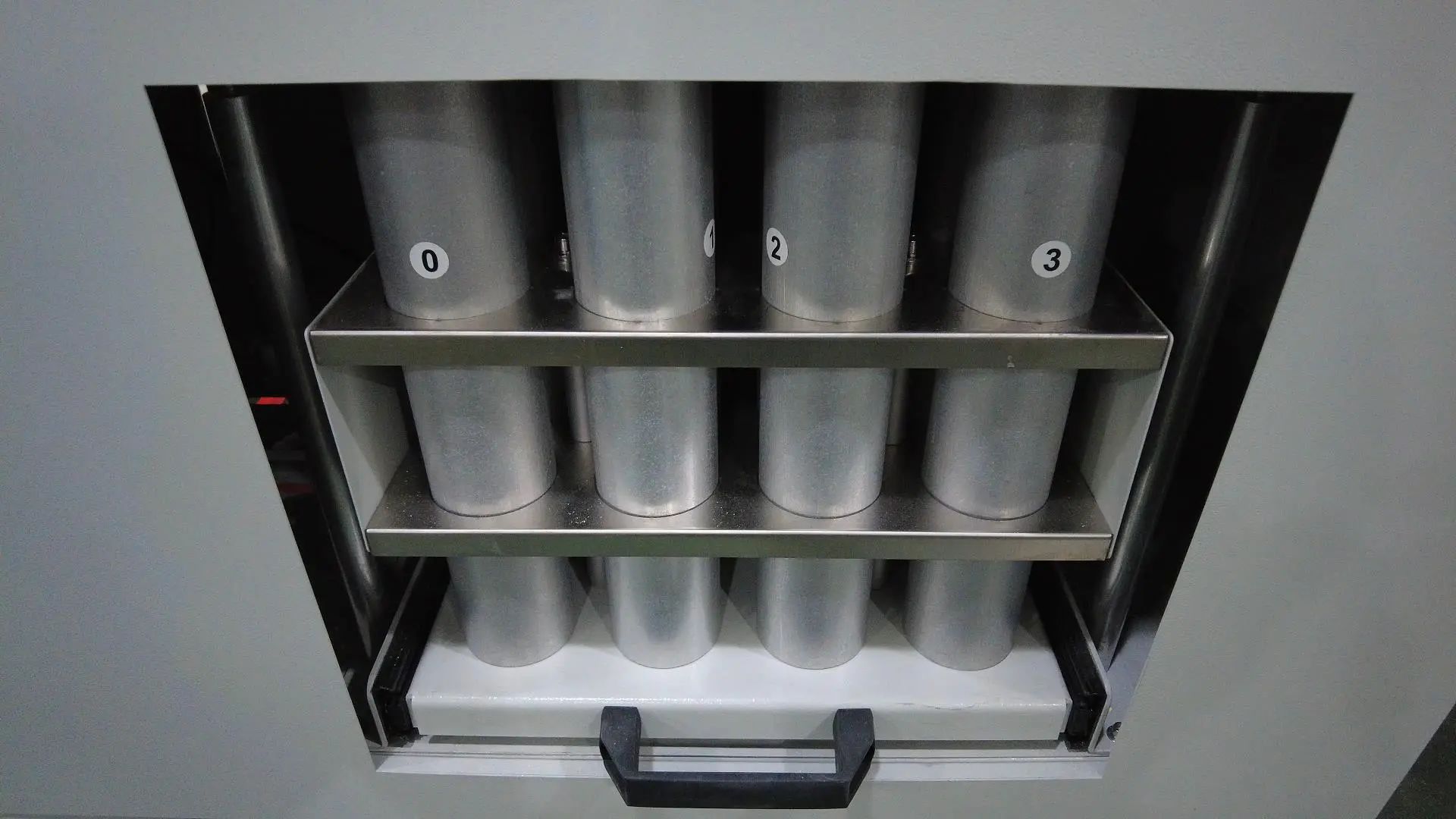
Wecon LED taping machine control system
01 Composition of taping machine
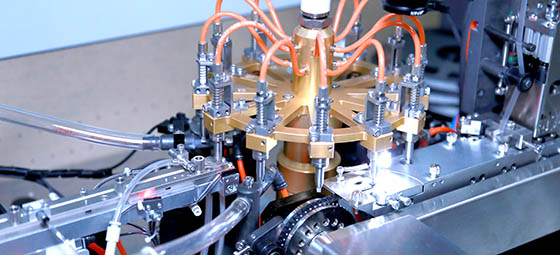
The main mechanisms of the taping machine are: Feeding mechanism, testing mechanism, packaging mechanism
02 Taping machine process
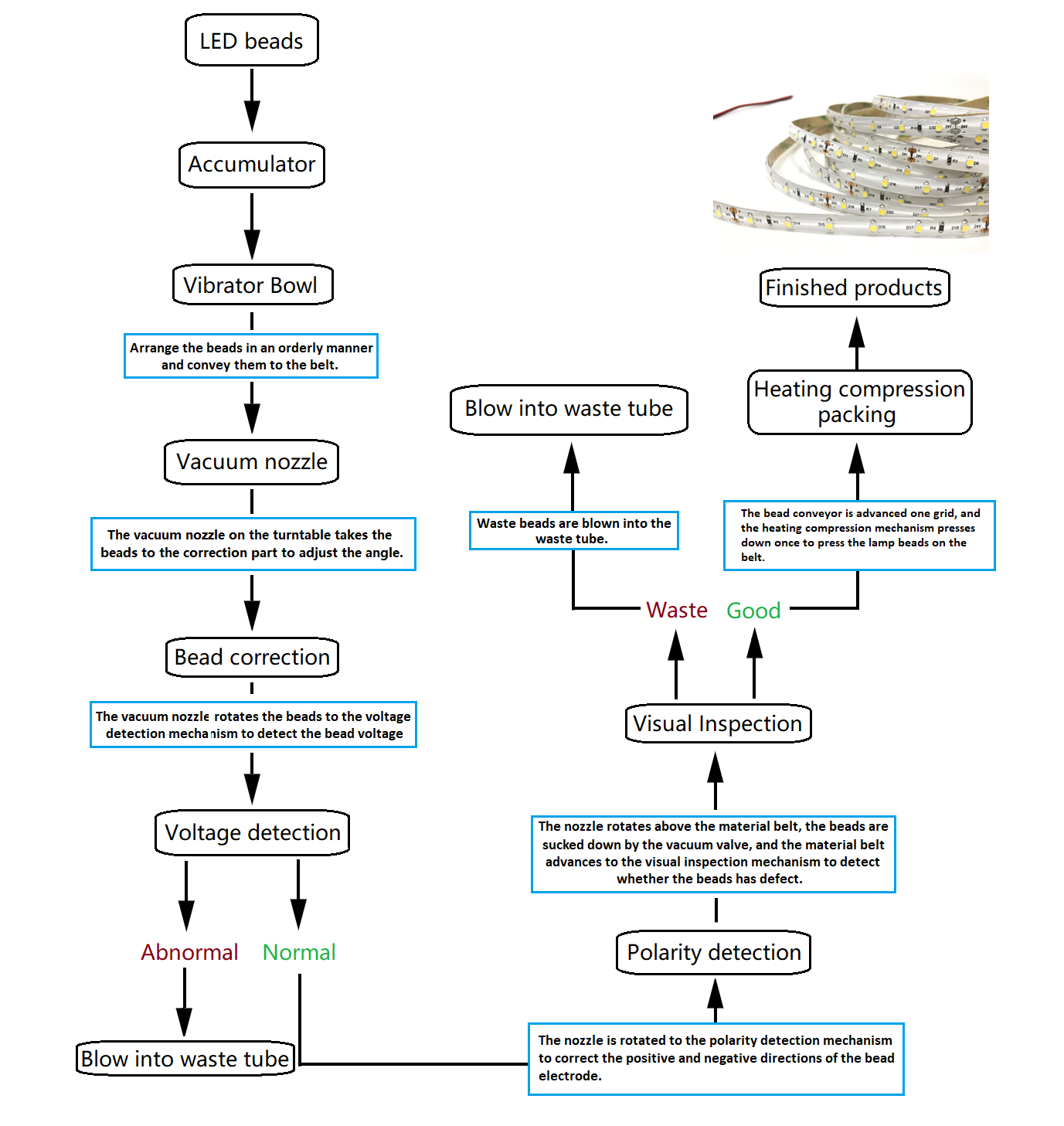
1. Feeding by feeding mechanism
The LED beads are poured into a storage device and entered into a vibration bowl through the storage device, the vibration bowl arranges the beads in an orderly manner and conveys them to a track, and the end of the track is a turntable;
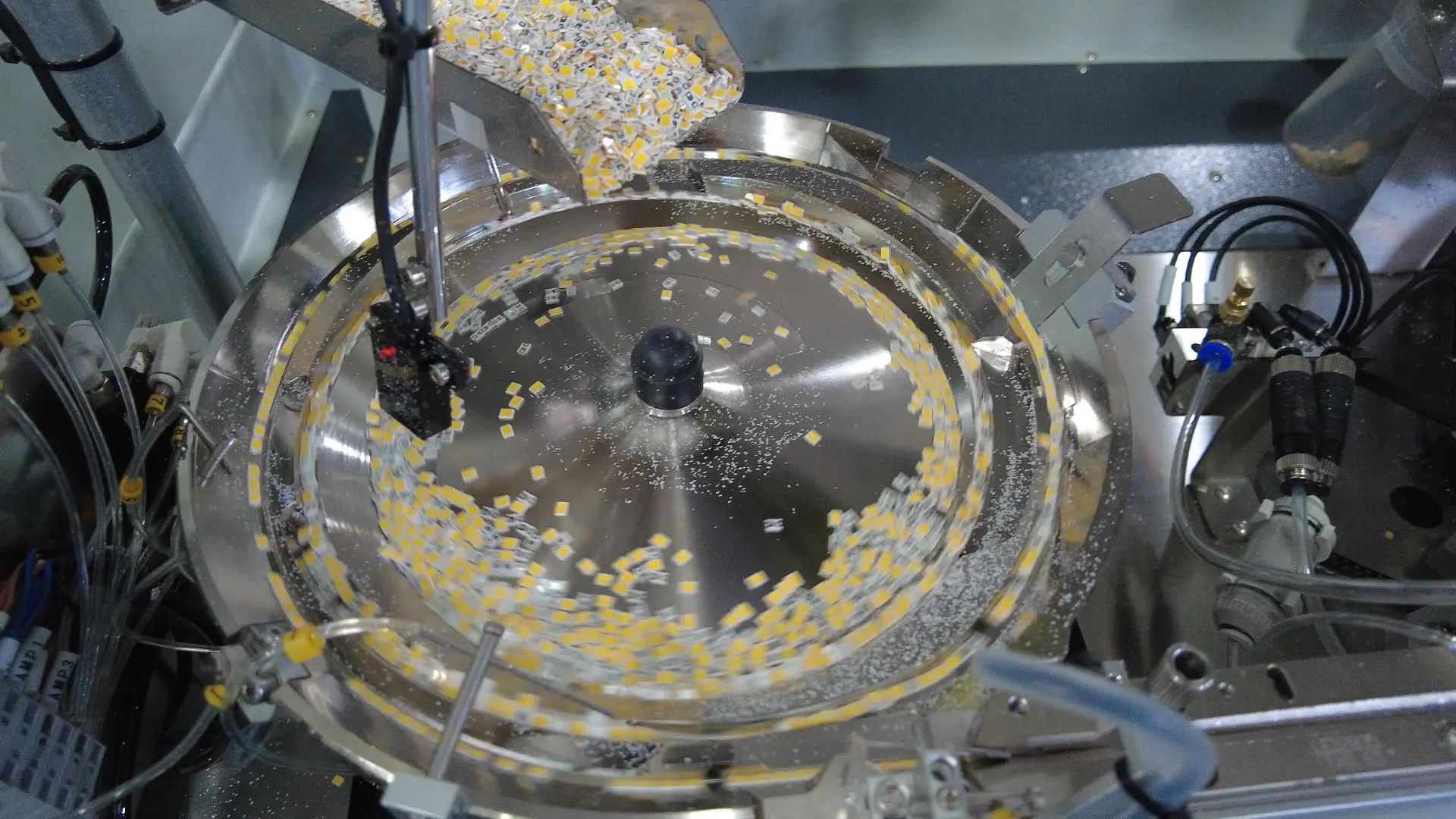
2. LED bead correction
The turntable has 12 nozzles, the nozzles rotate clockwise to suck up a LED bead from the track in turn, and the nozzles rotate to the correction mechanism to correct the direction and angle of the bead;
3. Voltage detection
The nozzle rotates to the voltage detection mechanism, the voltage of the LED bead is normal, and the nozzle continues to move forward. If the voltage of the bead is abnormal, the bead is blown into the waste pipe;
4. Polarity detection
The nozzle is rotated to the polarity detection mechanism to correct the positive and negative directions of the bead electrode;
5. Visual inspection
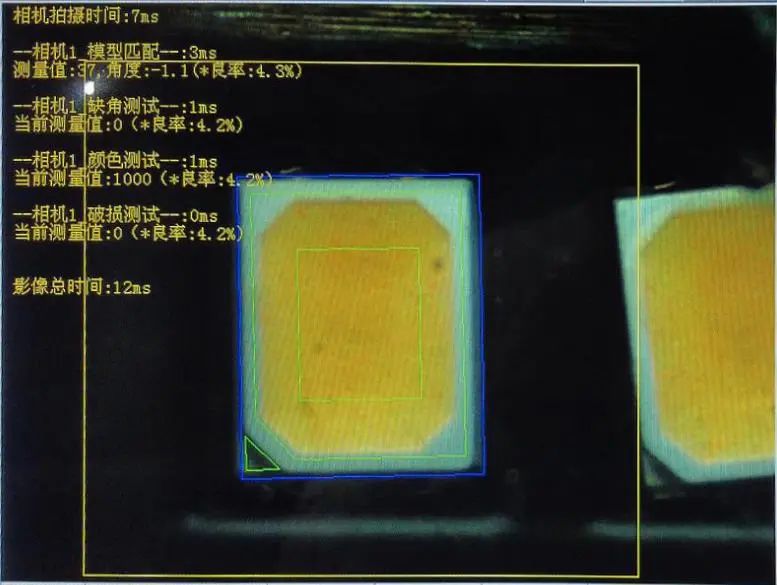
The nozzle rotates above the material belt, the beads are sucked down by the vacuum valve on the material belt, and the material belt advances to the visual inspection mechanism to detect whether the appearance of the beads is incomplete. If the bead is waste, the nozzle sucks up the beads again, rotates to the waste pipe, blows the beads into the waste pipe, and if the bead is good, the material belt advances to the packaging mechanism;
6. Heating compression packaging
The material belt is advanced one grid, and the heating compression mechanism presses down once to thermally press the lamp beads on the lamp belt.
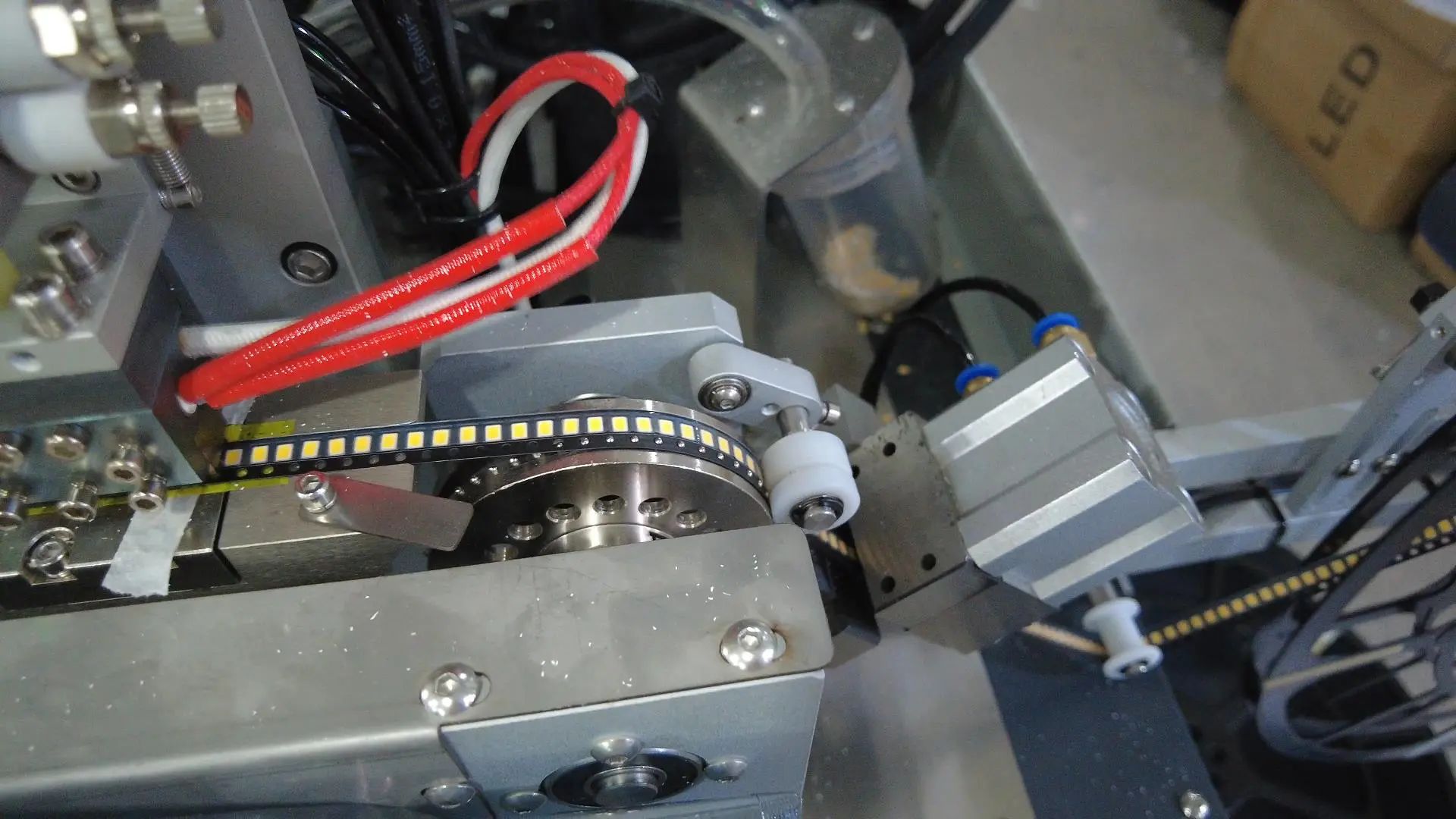
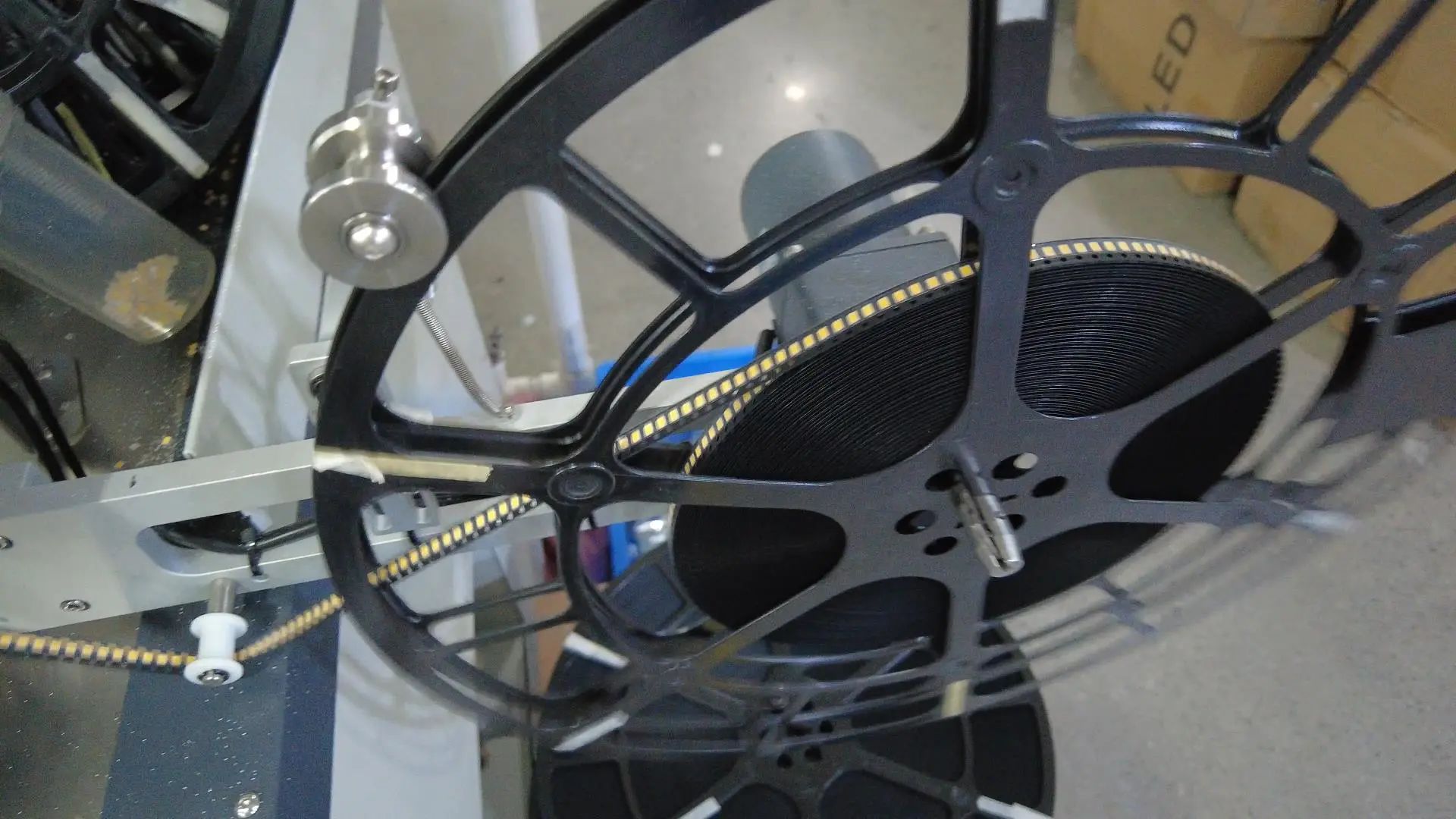
Advantages
1. Improve product quality
The equipment can accurately measure and classify key parameters of LED products, improving the stability and consistency of product quality;
2. Improve production efficiency
The equipment can quickly and accurately detect and select LED beads, which improves the overall efficiency of the production line;
3. Reduce production costs
Through automatically sorting, testing and taping, manual intervention can be reduced, production efficiency can be improved, and production costs can be reduced.
Through continuous technological improvement, the number of light sorting of LED sorting machine has increased year by year from 60k/h in 2020 to 120k/h in 2024, doubling production capacity. These technological improvements include improved LED sorting technology, optimized servo systems, and more efficient automation control, resulting in substantial improvements in production efficiency and product quality, faster order delivery, and more timely response to customer needs.
Finished Products
![1735290718903953[1].png](/ueditor/php/upload/image/20241227/1735292993738262.png)
Applications
